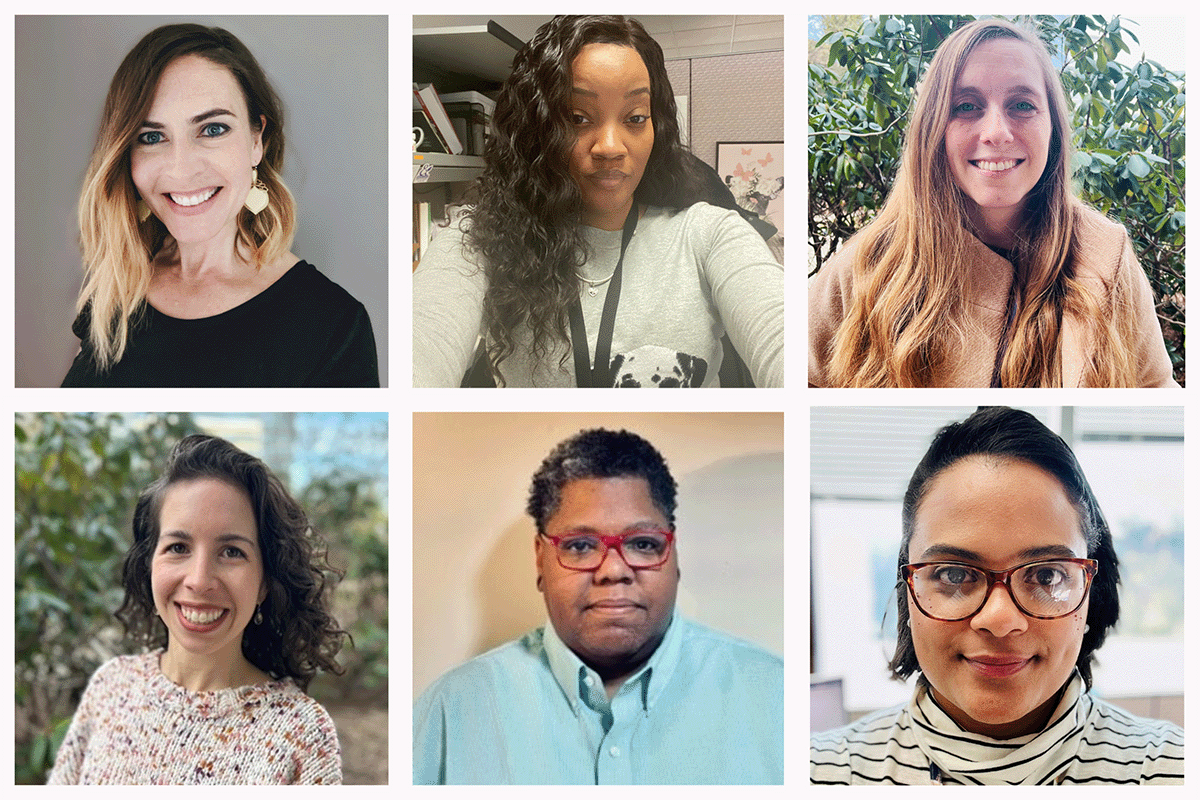(Posted 2025 April)
Olivia* was placed in foster care with Ms. Patterson* when she was just 27 days old, and her adoption was finalized when she was about 18 months old. Throughout her childhood, Olivia had ongoing special needs that Ms. Patterson managed with various therapeutic and medical services. However, as Olivia entered adolescence, her mental health needs increased, and she began to disengage from treatment.
A Mental Health Crisis
 Ms. Patterson, a single mother with a high-stress, full-time job, realized she needed additional support. In March 2024, Ms. Patterson contacted the Adoption and Kinship Assistance unit for help. Olivia, then 16, was diagnosed with Anxiety, Depression, and Amplified Musculoskeletal Pain Syndrome. Ms. Patterson observed a significant decline in Olivia's mental health, including self-harming behaviors and a lack of motivation. Despite implementing numerous community-based services like psychiatry, outpatient therapy, and Intensive Outpatient Programs, Olivia refused to engage in any form of therapeutic service.
Ms. Patterson, a single mother with a high-stress, full-time job, realized she needed additional support. In March 2024, Ms. Patterson contacted the Adoption and Kinship Assistance unit for help. Olivia, then 16, was diagnosed with Anxiety, Depression, and Amplified Musculoskeletal Pain Syndrome. Ms. Patterson observed a significant decline in Olivia's mental health, including self-harming behaviors and a lack of motivation. Despite implementing numerous community-based services like psychiatry, outpatient therapy, and Intensive Outpatient Programs, Olivia refused to engage in any form of therapeutic service.
A professional on the team informed Ms. Patterson that Olivia was in a mental health crisis, prompting Ms. Patterson to seek more intensive support. After a Family Partnership Meeting, it was decided that a Residential Treatment Center would provide the necessary level of care. Olivia began the program in May 2024 with the goal of returning home with improved self-regulation and communication skills.
While Olivia was at the treatment center, the separation was hard for Ms. Patterson. She drove two hours to visit Olivia twice a week, participated in family therapy, and stayed involved in every aspect of her treatment. Despite some difficult days, Olivia made significant progress, developing positive relationships with teachers and therapists, participating in therapy, and engaging in the program’s activities. Eventually, Olivia earned passes to leave the center and enjoyed outings with her mother.
Returning to Home for Community Based Services
By December 2024, Olivia had made enough progress that Ms. Patterson felt she could be discharged early from the RTC. Although the adoption assistance specialist had reservations, Ms. Patterson believed Olivia's needs would be better met at home with community-based services. To ensure a smooth transition, a thoughtful plan was created, and Olivia began a partial hospitalization program the day after returning home.
The adoption assistance specialist recommended Functional Family Therapy, an intensive short-term intervention that collaborates with families to address the youth’s challenges while building on strengths. This intervention aligned perfectly as Olivia prepared to return to public school. Ms. Patterson kept the team informed about her goals for Olivia, ensuring coordinated support.
The Adoption and Kinship Assistance unit and Ms. Patterson sometimes had different opinions about the best plan of action, but they successfully partnered to meet the family's goals. Ms. Patterson felt empowered to make decisions in Olivia's best interest, demonstrating determination and strategic planning.
Things Begin to Improve
 Olivia and Ms. Patterson have shown significant improvement in their communication. In therapy, they are working on realistic expectations and self-regulation skills. Ms. Patterson’s confidence in parenting a child with severe mental health needs has increased, and Olivia is learning to advocate for herself.
Olivia and Ms. Patterson have shown significant improvement in their communication. In therapy, they are working on realistic expectations and self-regulation skills. Ms. Patterson’s confidence in parenting a child with severe mental health needs has increased, and Olivia is learning to advocate for herself.
Ms. Patterson often expresses pride in Olivia, describing her as “extremely intelligent, artistic, athletic, funny, and creative.” After months of intensive interventions, Olivia is beginning to show interest in activities that previously made her happy, bringing comfort and joy to Ms. Patterson.
Advice and Resources
Ms. Patterson has gained valuable insights from her experience and offers the following advice to other families:
- Treat mental health as seriously as physical health: Start services as soon as a concern is identified. If you have adopted a child from foster care in Fairfax County and need support, contact the Adoption and Kinship Assistance team for help identifying treatment options.
- Utilize Family Partnership Meetings: These meetings bring a multidisciplinary team together to create a plan, identify therapeutic services, and possibly obtain financial assistance.
- Connect with a Family Support Partner: This service can provide immense benefit and support.
- Explore Intensive Care Coordination (ICC) Wraparound services: These services can help families provide consistent love and support, reducing the need for residential treatment centers. Families that use ICC services are often able to keep their children at home while still addressing their complex needs.
This experience highlights the importance of persistence, support, and community resources in managing the challenges associated with raising a child with severe mental health needs. It is a testament to the power of a dedicated and informed approach to foster care and adoption. By leveraging available resources and maintaining a proactive stance, foster parents can create a nurturing environment that promotes healing and growth.
*Names changed to protect confidentiality

This article posting is part of the Foster Family News monthly newsletter designed to keep foster parents informed about all the new and notable happenings in Fairfax County.
Learn about what the Foster Care and Adoption program has planned for foster families - stay on top of trends, participate in trainings and learn about policy changes.


